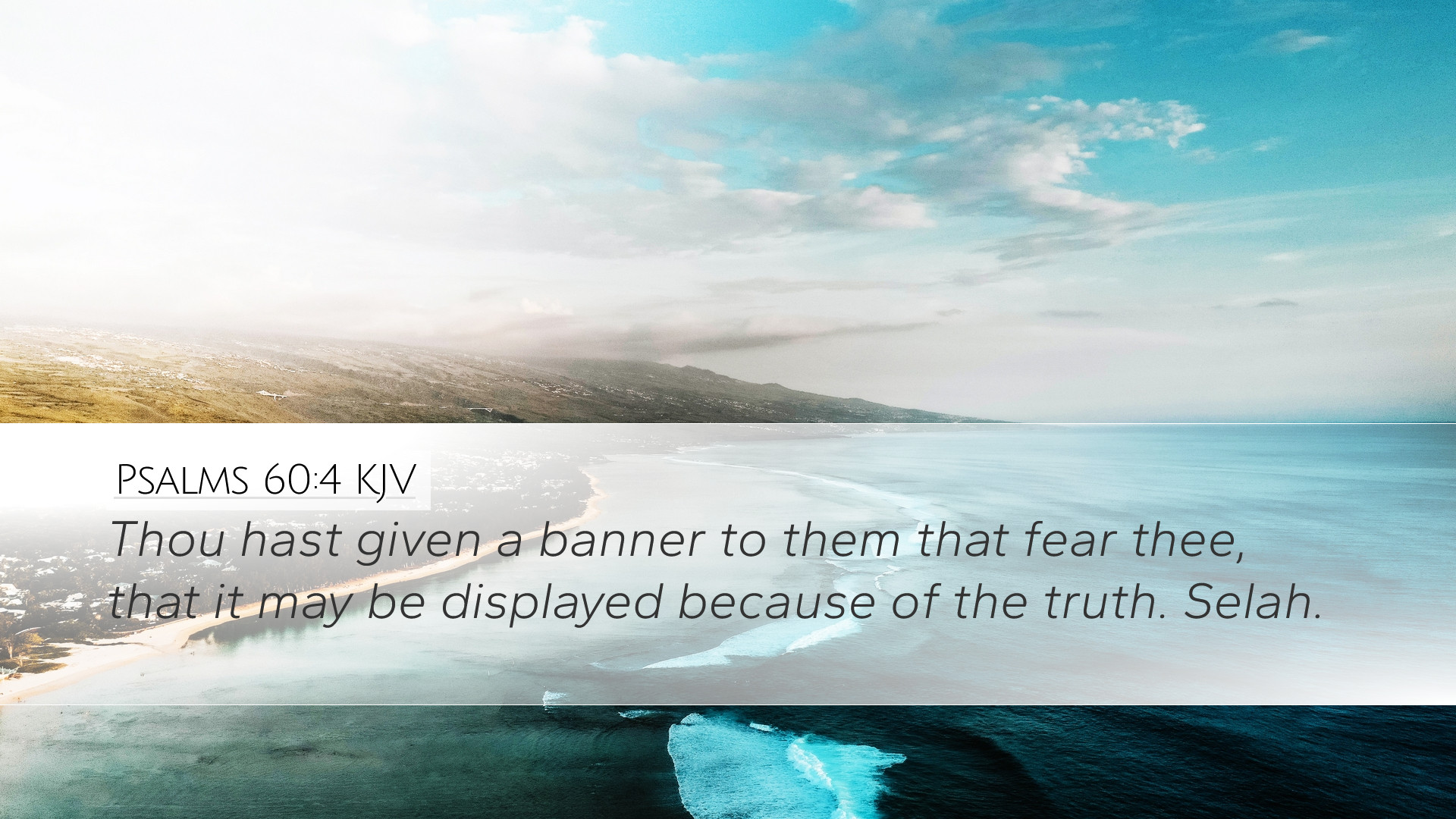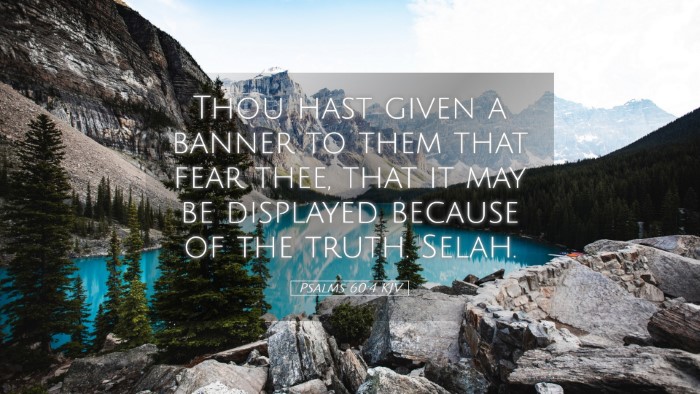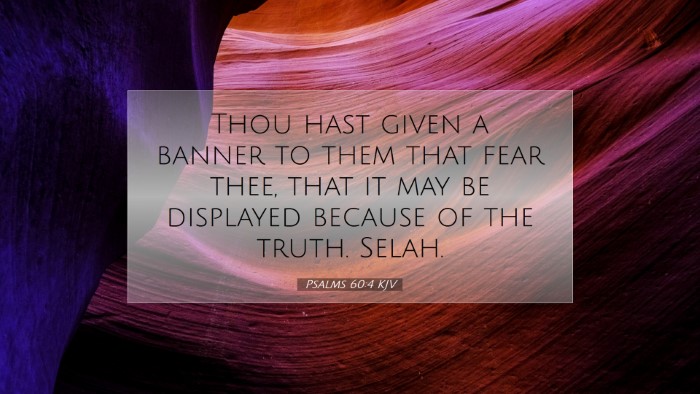Psalms 60:4 - A Commentary Summary
Bible Verse: "Thou hast given a banner to them that fear thee, that it may be displayed because of the truth. Selah." (Psalms 60:4)
This verse encapsulates a profound message of divine protection and truth, becoming a source of encouragement for believers. The Psalmist highlights God's provision of a banner, which signifies a standard of victory and identity for His people.
Contextual Background
The Psalms were often written during significant events in Israel's history, and Psalm 60 is attributed to the time when Israel faced great military struggles. This context is essential for understanding the import of God providing a banner for His people.
Theological Insights
In reflecting on this verse, we draw from various public domain commentaries:
Matthew Henry
Matthew Henry emphasizes the notion of God's protection over His people. He suggests that the "banner" represents God's covenant love and faithfulness. Just as a flag signifies the identity of a nation, so God's banner signifies His presence and His assurance of victory for those who fear Him.
Albert Barnes
Albert Barnes points out that the banner is given to those who "fear" God, suggesting a close connection between reverence for God and His provision of aid. This highlights a key theme throughout Scripture that those who align themselves with God through fear, or reverence, shall see His deliverance. The mention of "truth" also indicates that the banner may serve as a proclamation of God's righteousness and salvific nature in a world often overshadowed by lies and deception.
Adam Clarke
Adam Clarke provides additional insight by interpreting the term "displayed" as an act of public declaration. This suggests not only that God's protection is available but also that it should be proclaimed among the nations. The act of lifting the banner becomes both a personal and communal act of acknowledging God's sovereignty. Clarke further notes that the "Selah" at the end urges the reader or worshiper to pause and reflect upon the significance of God's providence and glory.
Symbolism of the Banner
The imagery of a banner in Scripture is rich with symbolism:
- Identity: The banner represents the identity of God's people, reminding them that they are set apart and called according to His purpose.
- Victory: Banners were often raised in battle as symbols of victory, indicating God's triumph over the enemies of His people. This verse assures that God fights on behalf of those who revere Him.
- Unity: As banners unite soldiers under a common cause, so too does God's banner gather His followers in unity to pursue His mission on earth.
- Proclamation: The lifting of the banner acts as a declaration of faith in God's promises and character, making it an essential act of worship and testimony.
Practical Applications
For pastors and theologians, there are several practical applications of this verse:
- Pastoral Care: Encourage your congregation to recognize the "banners" God has given in their lives. This can boost their confidence in His protective and guiding hand during difficult times.
- Teaching on Fear of God: Develop teachings that explore the relationship between fearing God and experiencing His blessings, based on the insights of biblical commentators.
- Unity in Worship: Foster an atmosphere of unity within the church by leading the congregation to raise God's banner through collective worship and prayer, reinforcing their identity as His chosen people.
- Evangelism: Encourage members to publicly display their faith in various contexts, using the banner metaphor to discuss their identity and hope in Christ with others.
Conclusion
Psalms 60:4 provides a powerful reminder of God's ongoing commitment to His people amid trials. The commentary from esteemed theologians like Matthew Henry, Albert Barnes, and Adam Clarke enrich our understanding of the verse, illuminating its themes of identity, victory, and unity. Pastors, students, and theologians alike can draw from this verse to inspire both personal and communal faith in God's truth and provision.


